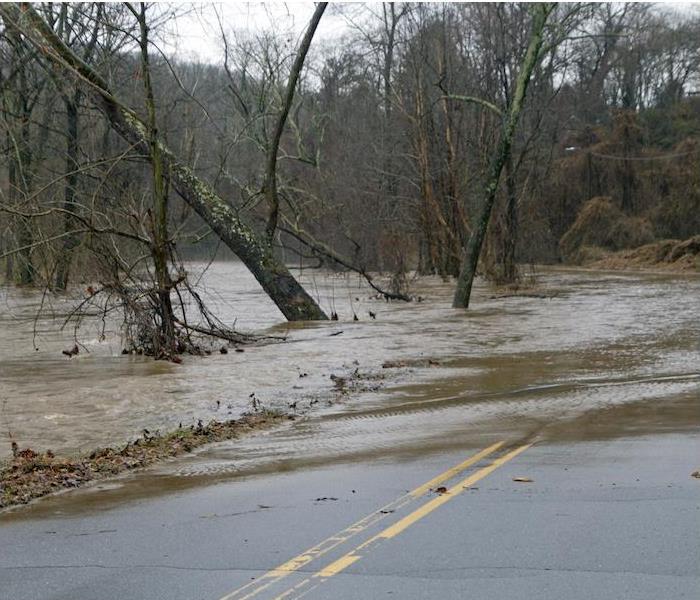Examining the Risks Associated With Flash Floods SERVPRO® of Henderson/Boulder City
1/5/2021 (Permalink)
 SERVPRO of Henderson/Boulder City is your local water & storm restoration expert. We will get the job done right, contact us today. 702-564-8508
SERVPRO of Henderson/Boulder City is your local water & storm restoration expert. We will get the job done right, contact us today. 702-564-8508
Examining the Risks Associated With Flash Floods | SERVPRO® of Henderson/Boulder City - SERVPRO OF HENDERSON/BOULDER CITY Blog
Any scenario involving severe weather is one to be taken seriously, but in the event of flash floods, there are additional concerns on the table. In the United States, flood deaths are second only to heat incident deaths for weather-related fatalities, and flash floods are the most dangerous type of flood of all.
Flash floods get their name because they come about suddenly, and those in their path are rarely given an advanced notice period to react. Anything that carries water can also turn deadly in a flash flood, leading to neighborhood drainage ditches or storm runoff areas overflowing. To stay safe, it is wise to know the facts surrounding flash floods.
How Is a Flash Flood Differentiated From Other Types?
There are several different types of floods, but what makes a flash flood so dangerous is how quickly it can come about. When heavy rainfall occurs, flash floods will happen in less than six hours after they begin, often happening closer to three. These conditions create a scenario where people are not given enough notice and have very little time to evacuate or get to higher ground.
How Are People Alerted to Their Risk of a Flash Flood?
Anytime there is severe weather, it is vital to pay attention to your local weather station for the most updated alerts possible. Flash floods happen suddenly, so while a flash flood watch indicates that there may be conditions present for a flash flood, when a flash flood warning is declared, you will only have moments to react in many cases.
If there is a flash flood emergency issued, move to higher ground immediately.
How Can I Protect My Family From a Flash Flood Risk?
For a severe weather event that comes about as suddenly as a flash flood, it is so important to know the safety facts beforehand so you can think quickly under pressure. Here are some of the most important tips to memorize:
- Always tune into local weather updates if severe weather is a possibility.
- Have a household evacuation plan that everyone has practiced.
- Never cross floodwater, even if you are in a car.
- Avoid touching floodwater in any capacity, as it is often contaminated.
- Have several evacuation routes in mind in case some become blocked by water.
If your home or business has been damaged due to a flood or other severe weather, you can depend on us. Contact us at any hour to learn more about our services or to report damage to your property.

 24/7 Emergency Service
24/7 Emergency Service